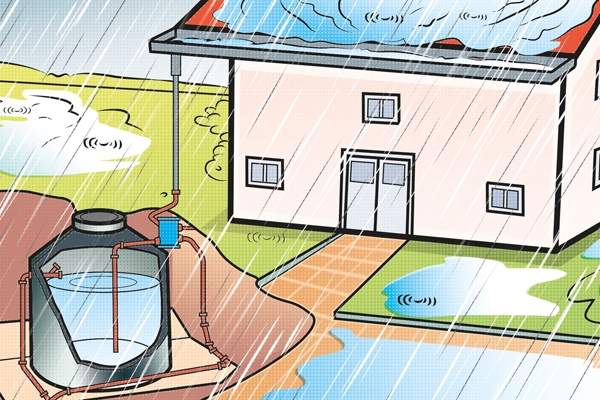Rainwater harvesting system has been made compulsory in Indore city for all residential buildings – existing and upcoming – of at least 1,500 square feet. It’s a must for all the non-residential and government structures too.
The new rules came into effect after the Madhya Pradesh government on April 4 notified Indore Municipal Corporation (Rainwater Harvesting) Bylaws, 2022. “Any violation of the new rules will invite penalty of Rs 5,000. Existing buildings that meet the criterion will have to install rainwater harvesting measures,” IMC commissioner Pratibha Pal said.
Giving teeth to the implementing officers, the bylaws have special provisions that prevent any lawsuit, prosecution or litigation against the government employee authorised under the bylaws to take action in accordance to the directives, the IMC commissioner said. These rules are exclusively designed for IMC. It ensures rainwater harvesting measures are put in place by making it mandatory for builders to pay a returnable security deposit for rainwater harvesting system, she said.
Residential buildings between 10,000 sqft and 25,000 sqft will need a harvesting pit of 4 metre diameter and 15 metre depth. Buildings above 25,0000 sqft will require a 6m-diameter pit. People constructing buildings above 1,500sqft will have to obtain permission from IMC after paying a security deposit, which will be returned after IMC certifies the system and finds it operational, Pal said.
The owners or builders will have to provide geotagged photographs and schematic details of the rainwater harvesting system to get certification. IMC will give a 10% rebate on consolidated taxes to a builder installing certified rainwater harvesting system.
IMC will carry out regular inspection of the rainwater harvesting system to check components including water collection area/system of/on the roof, pipes installed for downward flow of water from roof, control valve and flash pipe, filter units and the storage tank.
As per the bylaws, rainwater captured from the roof’s catchments should be connected to the harvesting system and the excess water to the roadside storm drain. If rainwater is found to be released into the civic body’s sewer system, it will lead to a penalty of Rs 500 per day, not exceeding Rs 5,000.


